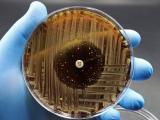Jul 30, 2010
Recalled rodent feed linked to 400 UK illnesses, 30 in the US
A Salmonella outbreak in humans linked to handling contaminated frozen mice for use as reptile food has sickened more than 400 people in Great Britain since 2008 and at least 30 people from 17 US states, the New York Times reported yesterday. British health officials first linked an outbreak in humans to reptile food from Mice Direct, a Georgia company that recently recalled three varieties of its reptile food. Half of the UK cases involved children under 10, and related illnesses continue to occur in the region, even though shipments from the company were halted last year, an official from the Health Protection Agency told the Times. British officials notified Mice Direct, and a spokeswoman from the US Centers for Disease Control and Prevention (CDC) said British officials alerted their US counterparts about the problem in May 2009, the Times reported. The CDC said no US cases involving the Salmonella strain involved in the outbreak had surfaced at that time and that the CDC notified the US Food and Drug Administration (FDA). A Jul 26 recall notice from the FDA said that its own sampling had found the pathogen in the company's frozen mice, and an investigation into the contamination is continuing. The CDC's Dr Barton Behravesh told the Times that the US cases are spread across the country and that half of the sickened patients are under age 12. So far, reports have not said what Salmonella subtype is responsible for the outbreak. In a related post yesterday on ProMed-mail, the Internet-based reporting system of the International Society for Infectious Diseases, a moderator pointed out that though rodents aren't commonly thought of as a source for human Salmonella infections, they can be a reservoir.
Jul 29 New York Times story
Jul 29 ProMed-mail post
Study pinpoints emerging E coli strain as drug-resistant culprit
An analysis of Escherichia coli isolates collected in 2007 from hospitalized patients reveals that a new drug-resistant strain, ST131, is causing serious antimicrobial-resistant illnesses in the United States, a research group from Minnesota and Iowa reported in the Aug 1 issue of Clinical Infectious Diseases. The 54 E coli ST131 isolated they explored accounted for 67% to 69% of E coli isolates that showed resistance to fluoroquinolone or extended-spectrum cephalosporin. In a press release today from the Infectious Diseases Society of America (IDSA), the researchers said the new E coli strain is unusual, because resistant ones in the past have had a low ability to cause serious disease. They said the strain has been reported in many countries and in all parts of the United States. Study author Dr James Johnson, with the Veterans Administration Medical Center in Minneapolis, said in the statement that the next steps are to identify ways to slow the emergence by identifying the strain's sources, transmission pathways, and factors that have led to its rapid emergence.
Aug 1 Clin Infect Dis abstract
Jul 30 IDSA press release





















